Sam McGee — called by some “the granddad of country guitar pickers” — got his start in April 1926 when he traveled to New York City for his first recording session, backing up the legendary Uncle Dave Macon on eight sides at the Brunswick studios.
Thirty-year-old McGee met Macon two years earlier when the banjoist played a show near Sam’s Franklin, Tennessee, home. Sam was a blacksmith in those days, but he had played guitar and banjo for many years.
Following the show, McGee invited Macon home and, after hearing Sam pick “Missouri Waltz,” Uncle Dave invited him to play a few dates with him. By the following year, McGee was playing regularly with Macon and fiddler Sid Harkreader at Loew’s Bijou Theater in Birmingham, appearing on stage in a rural outfit.
Later Macon teamed with Sam and his younger brother Kirk McGee to form an act that was billed as “Uncle Dave Macon and his Sons from Billygoat Hill,” capitalizing on that same backwoods image.
“I never did learn much about playing from him,” Sam said, “but I did learn a lot about handling an audience.”
About the Song
One of the eight songs Dave and Sam recorded in their April 14, 1926, session in New York was “Last Night When My Willie Come Home,” a song that seemed to be making the rounds in the South at the time.
About a year later in Atlanta, for instance, Frank Blevins' Tar Heel Rattlers cut the tune for Columbia. Three years after that in Knoxville, Vocalion recorded it by The Smoky Mountain Ramblers, basically a pickup group backing steel guitarist Walt McKinney.
One of the more interesting early covers of the song was blues singer Skip James’ rendition, which Paramount Records released in 1932 as “Drunken Spree.” Those first records, waxxed in Grafton, Wisconsin, formed the basis of James’ musical reputation.
Folkies Find It
After that, the Willie-coming-home song seems to have drifted away from music’s collective memory for a few decades, until it was reborn in the folk music boom 30 years later.
The extraordinary New Lost City Ramblers were the first to give “Late Last Night When Willie Came Home” new energy when the group included it on the second volume of its tunes for Folkways in 1960, inspiring other old-time outfits to follow suit.
Enter Doc Watson
The song launched higher into the folk music stratosphere two years later.
That’s when Doc Watson recorded it with Clint Howard and Fred Price on an influential Folkways’ album of various artists called Old Time Music at Clarence Ashley’s.
From then on, Doc more or less adopted the tune — which he famously re-dubbed “Way Downtown” — as a favorite vehicle for his virtuosity.
Watson’s rendition with The Nitty Gritty Dirt Band is one of the standout tracks on the seminal 1972 Will the Circle Be Unbroken album. Over the next few years he and his friends played it at many urban folk festivals.
In the last dozen years of his life, Doc was still digging it. He played “Way Downtown” live on his 1999 An Evening with Doc Watson and David Holt album.
Along the way, the song also has been covered by Tony Rice, Jody Stecher, Billy Strings and many others.
Our Take on the Tune
It's funny how songs come in and out of The Flood’s life.
A half century ago when the band was just thinking about being born, Dave Peyton and Charlie Bowen would get together on weekends to pick and sing, just the two of them, and among the tunes they’d play was “Way Downtown," which they learned from that old Doc Watson record.
After the band came together — as Roger Samples and Joe Dobbs, Bill Hoke and Stewart Schneider joined up — "Way Downtown" was a regular.
The song has drifted in and out over the years, and whenever it rambles back in, it’s just as comfortable as an old shoe. This is a take on the tune from a recent rehearsal.
Audio Extra
Oh, and here’s a snippet from The Flood archives. Click the button below to hear Charlie at a gig urging folks to sing along on the chorus and explaining how harmonicat Sam St. Clair was promoting a special pronunciation:

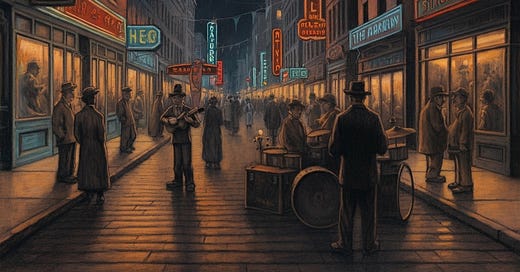





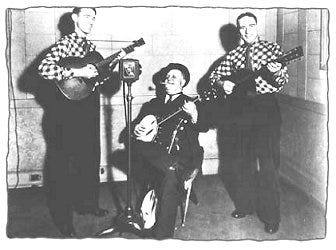

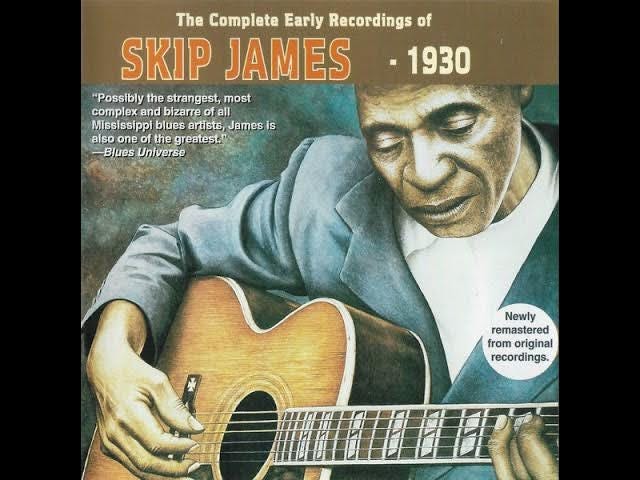

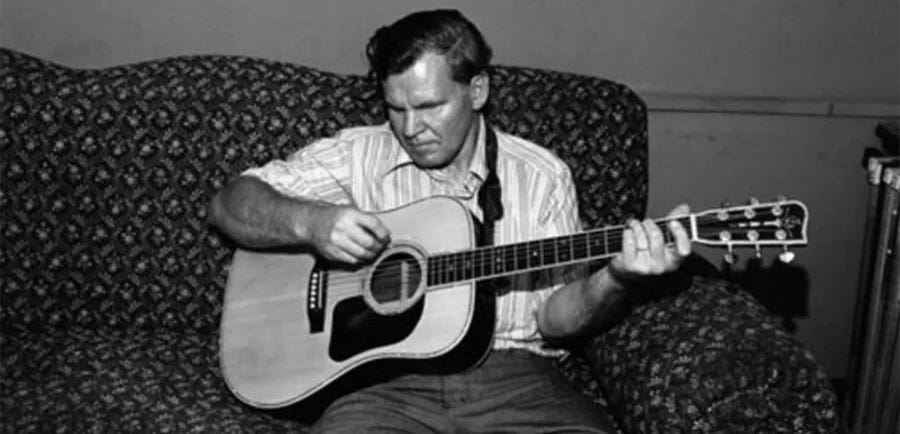
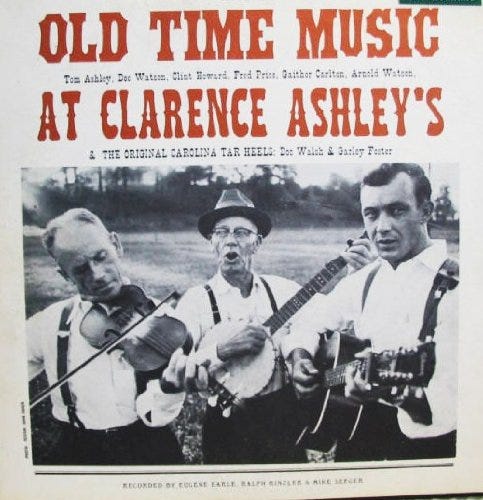
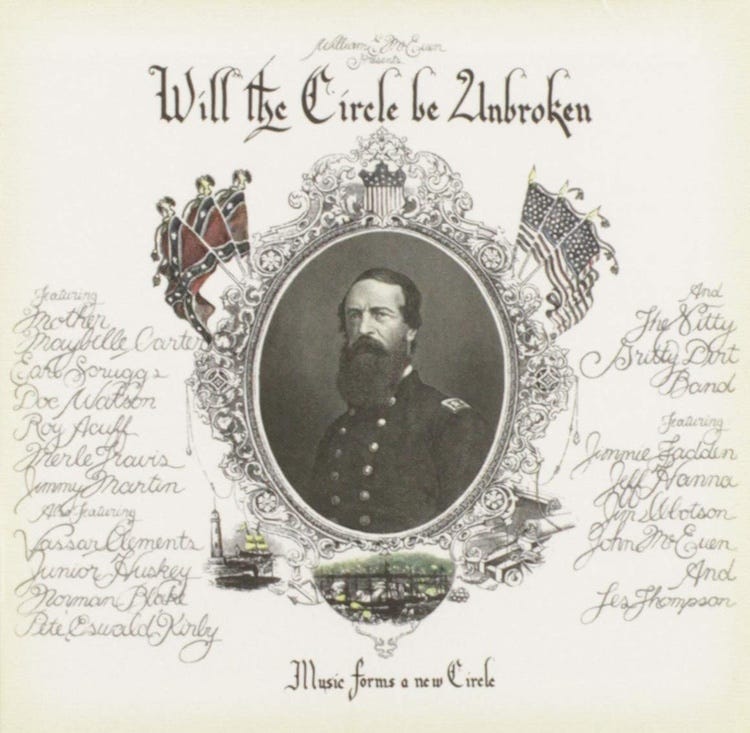


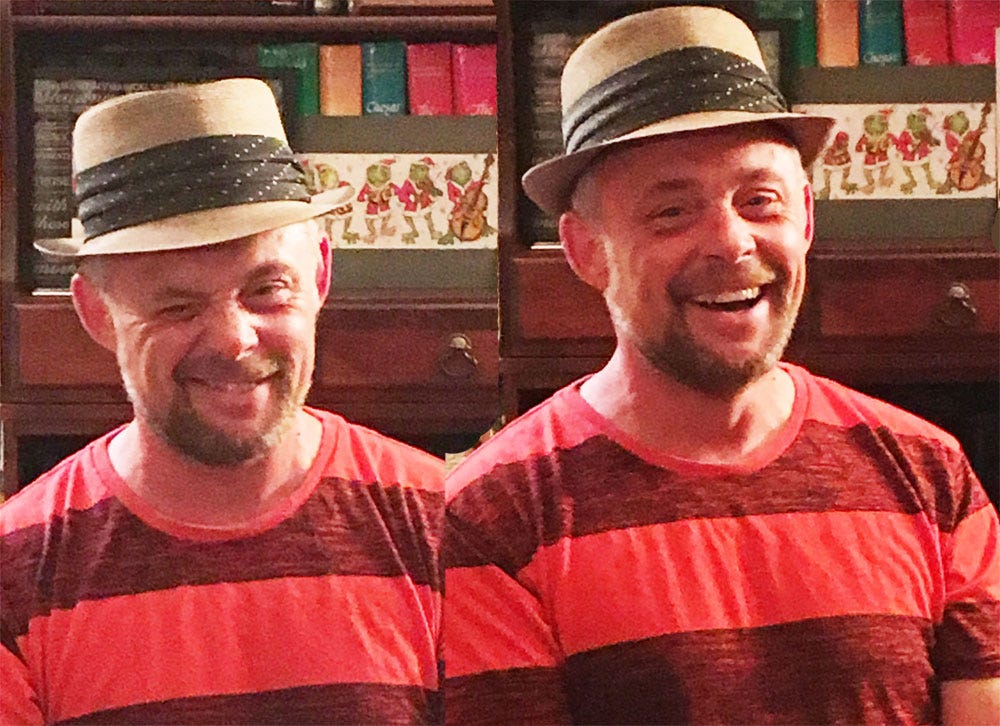









Share this post